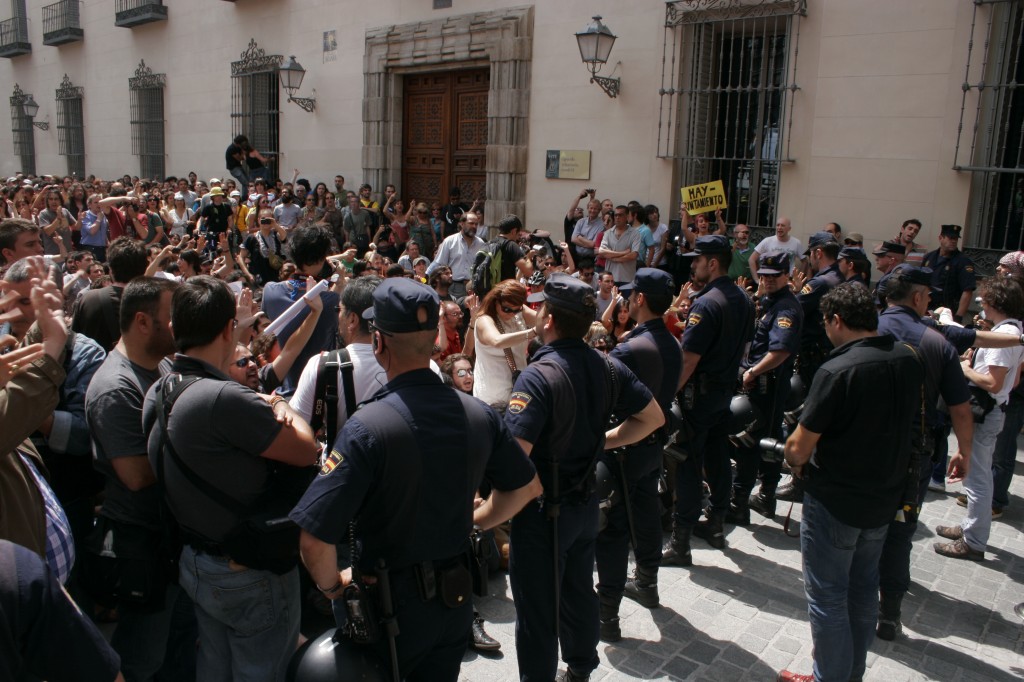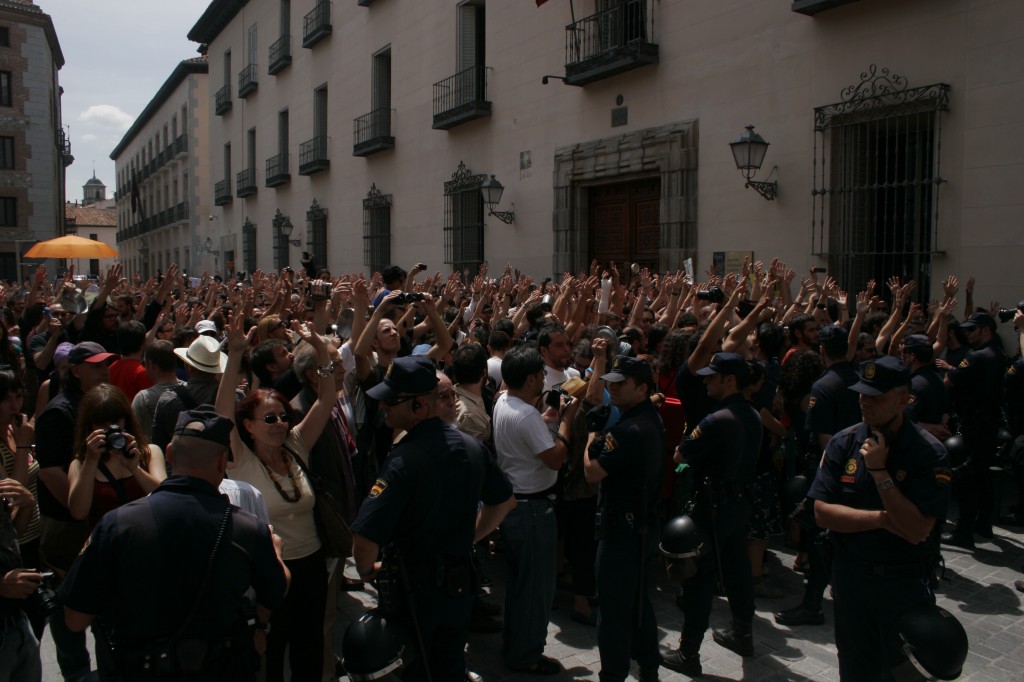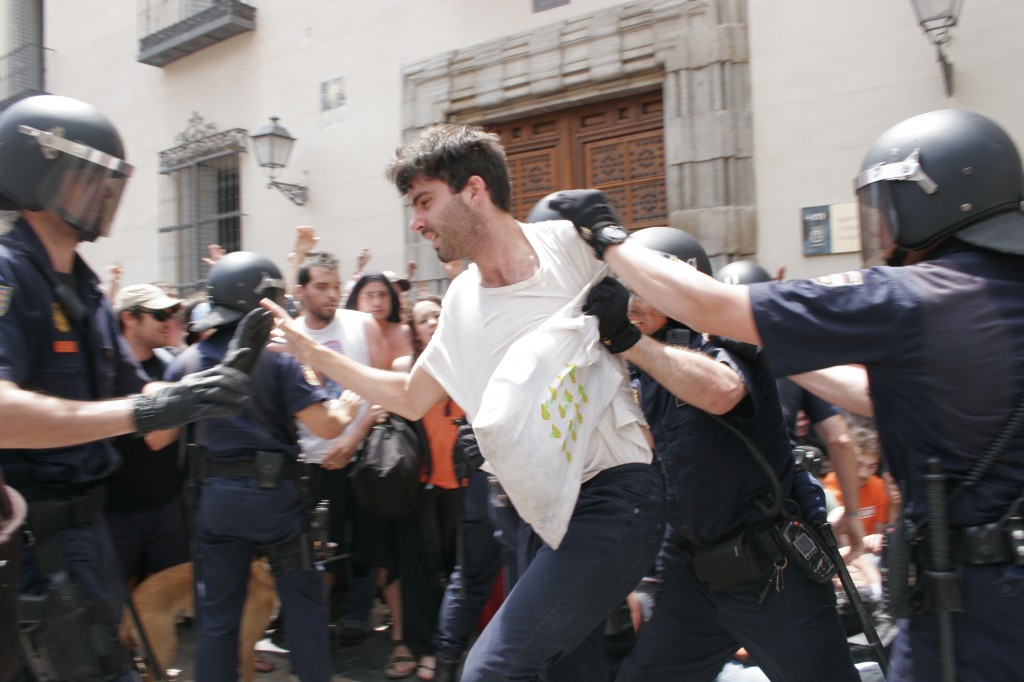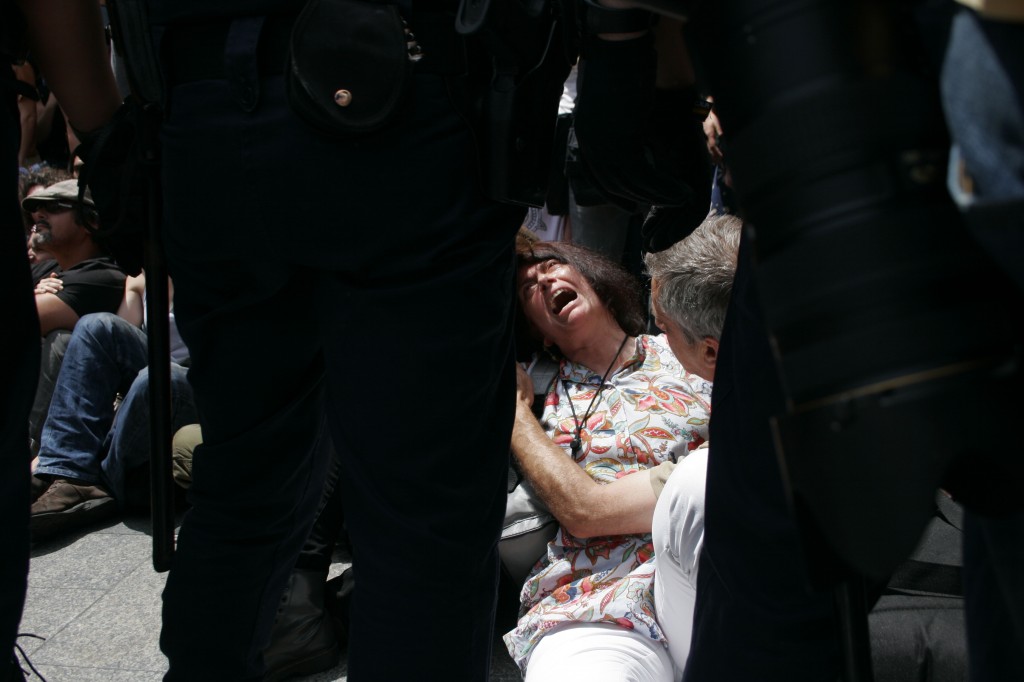The mobilizations that started on May 15 in Spain have gradually evolved into local meetings, gatherings and different kinds of initiatives all over the country. Most activists are not focusing on the camps any more. Campers have decided to leave the Madrid square “Puerta del Sol” on June 12, 2011. It became the physical symbol of the people's unease with their political representatives. Netizens are calling this shift “Sol se mueve” (Sol is moving), and using the tag #solsemueve on Twitter.
This does not mean that the movement has died. Assemblies and reunions co-exist with specific actions, like the marches towards city councils on June 11 to protest against the investiture of politicians charged with corruption. In Madrid, the capital city, a sit-in ended up with police charging against demonstrators, which can be seen on the videos widely shared online, like this one by journalist Juan Luis Sánchez of Periodismo Humano [es]:
The demonstrations can be followed through the #15menpleno tag on Twitter:
dar1o: En madrid cantan levantando las manos: estas son nuestras armas! #15menpleno #acampadasol
bufetalmeida: Concejales que pierden el miedo y se unen a los manifestantes. Sin escolta, sin coche oficial. Sin miedo, son el futuro. #15Menpleno
@Acampadabcn: En Palma de Mallorca, porrazos y tres detenidos. ¡Tod@s a la comisaría d San Ferrán ahora mismo! #15menpleno
Two days before, on June 9, people marched towards the Congress to protest against the latest budget cuts that have left many people in precarious economic situations and in an even more vulnerable position. This was widely covered by Spanish media [es]. It was also the most commented topic through social media that day, mainly through the #15mfrentealcongreso tag:
phumano: Emocionado abrazo al coreado “abuelo de la revolución” #15M, #15Mfrentealcongreso, por J Bauluz http://yfrog.com/hsltfraj
Some people also oppose the mobilizations and insist that the police evict activists from public spaces:
DarkPlooKoon: Hay más policía que civiles y no pueden desalojar. ¿Que es esto señor Rubalcaba? ¡VERGONZOSO! #19J #15MFRENTEALCONGRESO
The mobilizations show an increasingly wider gap between the people and the government in Spain, which has become even more visible after three members of the international hacktivist organization Anonymous were detained under accusations of “piracy and hacking of official websites.” The police proudly announced the detention through an official communication [es]:
La cúpula del grupo Anonymous ha sido desarticulada en nuestro país.
The pictures in which the Police shows the masks that the members of Anonymous use to engage in allegedly criminal activity have been widely shared online:
The arrest has been widely covered by international media. It has also led Spanish Internet users to make fun at the government's lack of understanding of how the Internet works:
@dbravo: Nada, un grupo de amigos que se reunen siempre en un mismo sitio. No digo más, que nos desarticulan.
Anonymous, just as most Spanish netizens, have fiercely opposed the passing of the 2009 Sustainable Economy Bill, which allows the government to decide which sites should be blocked or have their content removed, representing a big blow against net neutrality (please read post on Global Voices Advocacy). It is another proof of the gap between people and their political representatives, which has caused different participatory initiatives to foment political awareness. Movements have also grown in other countries, becoming more and more global, as seen in this video shared by France 2:













1 comment
To watch more pictures in relation with these article you click here: http://www.flickr.com/photos/cristinagayart/sets/72157626812315669/